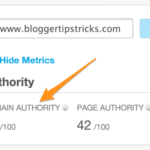8 Tips for Building a Data-Driven Organization
Data-driven organization utilizes available information to drive better business decisions. It believes that facts should fuel strategies, not opinions and emotions. Read on and we’ll list some of the best ways to embed a data culture in a company.
- Start at the Top
Creating a data-driven culture starts at the top. The management should normalize the use of data. They should act as role models when it comes to utilizing available information. More so, they should provide the necessary resources, including both money and time, to motivate employees to maximize the use of data.
- Ensure Quality of Data
To avoid poor decisions, which can result in unfavorable business outcomes, data quality should be a priority. The best practices include collecting only what is necessary, building a competent team, and accepting change, among other things. It also helps to use the right tools to collect, store, and organize information.
- Promote Learning
From executives to managers, learning is crucial to establishing a data-driven organization. Provide continuous opportunities to improve the knowledge and skills of the workforce. For instance, this is possible by allowing managers to take a data analysis course. This way, they will know how to create data-driven models that will influence decision-making.
- Increase Accessibility
Using data is not a role limited to the analytics team. Everyone in the organization must be given the right to access while having strict security measures in place to prevent breaches. Identify silos and destroy them. This is a must-have to promote data sharing across departments.
- Encourage Curiosity
Build an organization with a curious culture. Train employees to always be on the lookout for patterns. Empower your employees by encouraging them to ask questions. They should never feel intimidated.
- Invest in Cybersecurity
Establishing a data-driven culture also requires having a robust approach to cybersecurity. This improves information handling and storage, minimizing the possibility of a data breach. Otherwise, there is a risk of data loss. In turn, this can also result in a loss of customer confidence and might cripple business operations.
- Instill a Code of Ethics
Ethics is another important pillar in a data-driven culture. Everyone in the organization should know their roles when it comes to the ethical use of data. Customer privacy is one issue that the business should not take lightly.
- Embrace Artificial Intelligence
Artificial intelligence will transform data management. This will make businesses more insight-driven. From machine learning to deep learning, organizations should utilize a variety of technologies to help understand the overwhelming amount of information it needs to process. It can also help in the reduction of errors, and in turn, improve accuracy and quality.
Building a data-driven organization is not something that happens overnight. It is a goal that requires long-term actions, such as enlisting the support of the top management, promoting learning opportunities, and using artificial intelligence.
Photo by Scott Graham on Unsplash
















